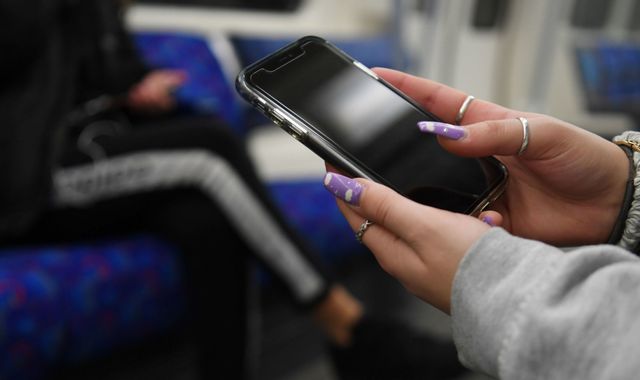Cases of cyber-flashing on trains are going ‘largely unreported’
Written by News on 19/02/2020
The number of women being sent sexually explicit pictures by strangers on trains more than doubled last year – but many incidents are going “largely unreported”.


There were 66 reports of cyber-flashing in 2019 compared with 34 in 2018, figures from the British Transport Police show.
Cyber-flashing is when a person sends an unsolicited sexual image to a stranger using AirDrop, a file-sharing function on iPhones.
Despite the rising number of cases, only one arrest was made in 2019 – and it is believed this crime is under-reported because victims believe cyber-flashing is “not serious enough” to contact the police.
Campaigners have said that “the actual number of women affected by this will almost certainly be much higher” than the police’s official figures.
If a victim’s AirDrop settings are set to “everyone”, it means someone outside of their contacts list can request to send them a file.
This can be done anonymously, as all that is shown on the receiving device is a preview of the picture and the name of the iPhone sending the file. As a result, bringing perpetrators to justice can be difficult.
The technology has a short range, meaning victims are often targeted on trains.
Figures obtained by the PA news agency suggest that 88% of the victims who contacted police were aged between 21 and 30 years old.
Most incidents happened on London Underground services or at National Rail stations.
Victims have said the incident caused them to feel fearful on public transport.
Rebecca Hitchen, from the End Violence Against Women Coalition, said the increase in cyber-flashing cases shows women are more confident they will be taken seriously if they come forward.
But the campaigner added: “It can also suggest that this particular behaviour is becoming more common.
“What we do know is that the actual number of women affected by this will almost certainly be much higher than the number of reports, and it will be impacting on their ability to go about their lives feeling safe and free.”
Laws around image-based sexual abuse are being reviewed by the government as part of proposals to bring cyber-flashing in line with other sexual offences.
Clare McGlynn, professor in law at Durham University and an expert on image-based sexual abuse, said the rising number of reports shows “women have had enough of this harassment”.
She added: “Now we need action, and I am confident the Law Commission review is taking this seriously, recognising that cyber-flashing can be very frightening and adversely impact on women’s daily lives.”
(c) Sky News 2020: Cases of cyber-flashing on trains are going ‘largely unreported’







